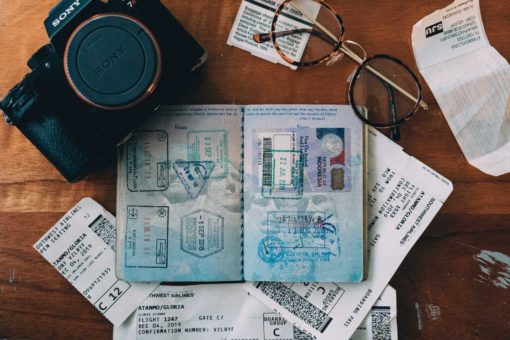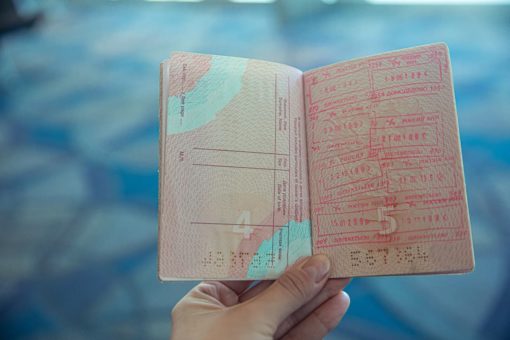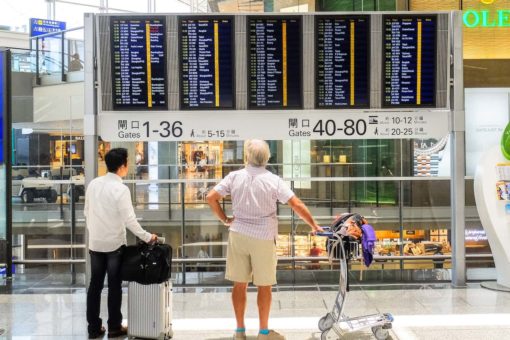As Schengen Visa experts, we receive tons of questions about the tourist Schengen Visa (which is the most common type of Visa requested by travellers).
That’s not surprising, since travelling to Europe is the wish of many, and getting a Schengen Visa isn’t always easy.
There is a lot of confusion surrounding the Schengen Visa application process caused by all the generic website information available on the Internet.
Not to mention that some websites even provide incorrect information about the application process.
That’s why we’ve decided to shed some light on the tourist Schengen Visa application process and write a post to answer the questions we have been asked the most.
Table of contents:
- What is a tourist Schengen Visa?
- What is the difference between a single-entry and a multiple-entry Schengen Visa?
- How can I get a tourist Schengen Visa?
- What are the requirements to get a tourist Schengen Visa?
- Can tourists get a multiple-entry Schengen Visa?
- Can I travel for business on a tourist Schengen Visa?
- Can I get a tourist Schengen Visa as a freelancer?
- Which Schengen country gives a tourist Visa easily?
- Can I apply for a tourist Schengen Visa if I’m unemployed?
- How much bank balance do I have to show for a tourist Schengen Visa?
- Is it easier to get a tourist Schengen Visa for the second time?
- Can I extend a tourist Schengen Visa?
1. What Is a Tourist Schengen Visa?

To explain the tourist Schengen Visa, we are first going to explain the type-C Schengen Visa – which is the most requested type of Visa.
A type-C Schengen Visa is a short-stay Visa issued by a Member State of the Schengen Agreement which allows you to circulate in the Schengen Area for a maximum of 90 days within a 6-month period.
Whether you are travelling for tourism, business, study, family visit, etc. you should apply for a type-C Schengen Visa.
Generally, the application steps and Visa policy remain the same no matter your travel purpose.
However, based on the purpose of your visit, you must add additional documents to your application.
This means that a tourist Schengen Visa is a type-C Schengen Visa you can get after submitting supporting documents to prove your travel purpose.
It enables you to enter the Schengen Area for tourism and leisure and cross the internal borders of all Member States without passport checks.
2. What is the Difference Between a Single-Entry and a Multiple-Entry Schengen Visa?
A single-entry Schengen Visa allows you to enter the Schengen Area once. If you leave the area, you have to apply for a new Visa to be able to return.
This rule applies even if the validity period of your Visa isn’t over yet.
On the other hand, a multiple-entry Schengen Visa allows you to enter and leave the Schengen Area as many times as you want for a maximum of 90 days over a 180-day period.
More information about the Schengen 90/180 days rule can be found in this guide.
3. How Can I Get a Tourist Schengen Visa?

We have previously written a number of articles on how to get a Schengen Visa depending on your country of residence.
For example, if you are from India, you may want to check out this post: How to apply for a Schengen Visa from India.
No matter the country you are currently residing in, you must first find out where you need to apply and when to submit your application.
Then, you must book your Schengen Visa appointment. It is important to book your appointment well in advance because a high volume of requests may leave Embassies and Consulates with few appointment slots available.
Once you have booked your appointment, you have to collect the supporting documents and submit your application on the day of your appointment.
Generally, you can expect to wait around 15 working days to get an answer on your application.
4. What Are the Requirements to Get a Tourist Schengen Visa?
As we mentioned before (see question no. 1 – What is a tourist Schengen Visa?), the supporting documents will stay the same for each application.
However, different travel purposes require you to add additional documents.
For instance, all applicants must submit documents such as Schengen Visa application form, two recently taken photos, a valid travel passport, flight reservations, Schengen Visa insurance, proof of accommodation, and proof of financial means.
But, if you are applying for a Visa for tourism purposes, you must also submit documents such as a day-to-day travel itinerary and hotel reservations.
You can check the full list of tourist Schengen Visa requirements here.
5. Can Tourists Get a Multiple-Entry Schengen Visa?

Yes, tourists can definitely get a multiple-entry Schengen Visa.
According to Art. 24(2) of the Schengen Visa Code, multiple-entry Visas can be issued to applicants who are able to prove the need or justify their intention to travel to the Schengen Area multiple times.
The Schengen Visa Code also states that multiple-entry Visas are issued to applicants who are able to show proof of their financial means and genuine intention to leave the Schengen Area before the expiration of their Visa.
If you are able to fulfil these conditions, then you can apply for a multiple-entry tourist Schengen Visa.
6. Can I Travel for Business on a Tourist Schengen Visa?
If you want to travel to the Schengen Area for business purposes, then you must apply for a Business Schengen Visa.
When travelling with a type-C Schengen Visa, you are allowed to undertake certain business activities, such as attending conferences and seminars or visiting offices.
However, you are not allowed to seek employment or carry out any activities that would be considered “work”.
Now, you might ask yourself, “Can I attend a conference or visit a company’s office on a tourist Schengen Visa?”.
The short answer is yes, you can.
If you want to travel to the Schengen Area as a tourist (and submit supporting documents to prove your travel purpose), you’re free to participate in conferences and seminars or visit a company’s office during your stay in the Schengen Area.
However, you must remember that it is important to stick to your travel itinerary. Again, if you plan on travelling to Europe for business purposes only, you should apply for a business Schengen Visa.
7. Can I Get a Tourist Schengen Visa as a Freelancer?

Yes, you can get a tourist Schengen Visa as a freelancer.
Your professional and employment status do not really matter when applying for a Schengen Visa – as long as you can prove your intent to return home.
You must also ensure that you meet certain requirements, such as the ability to cover your expenses during your trip to the Schengen Area.
If you work as a freelancer and don’t have all the required documents (e.g., documents related to employment or Income Tax Returns), our recommendation for you is to be as truthful as possible in your application.
Don’t try to twist some facts to your advantage as the Embassy officers are trained to spot any inconsistencies and this may cost you the approval of your Schengen Visa.
Instead, try to convince the Embassy officers that you are working as a freelancer and are not going to seek employment or stay illegally in the Schengen Area.
Be sure to attach to your application all the documents that can show proof of your current work as a freelancer.
8. Which Schengen Country Gives a Tourist Visa Easily?
We have previously written a post on the easiest Schengen Countries to apply for a Visa.
Generally, Estonia, Lithuania, Latvia, and Finland are the easiest countries to get a Schengen Visa from, with officials granting more than 95% of applications.
These countries also receive fewer applications than popular countries such as France, Germany, Spain, and Italy.
This means that they have more appointment slots available and shorter Visa processing times.
9. Can I Apply for a Tourist Schengen Visa if I’m Unemployed?

Yes, you can.
As we mentioned before, you’re free to apply for a Schengen Visa regardless of your employment status.
However, if you currently don’t have a source of income, there are a few challenges you need to tackle.
First and foremost, you have to get a sponsor who is able to financially support your stay within the Schengen Area.
Then, you must submit supporting documents that show proof of financial resources, such as your sponsor’s bank statements and sponsorship letter.
More information on the Schengen Visa requirements for unemployed applicants can be found in this post: How to apply for a Schengen Visa if you are unemployed.
10. How Much Bank Balance Do I Have to Show for a Tourist Schengen Visa?
The funds you need for your Schengen Visa application vary according to your destination country.
For example, if you’re travelling to Belgium, you need to have at least EUR 95 per day if you are staying at a hotel or other similar accommodation.
Or, if you’re travelling to France, you must have at least EUR 65 provided that you have a hotel reservation.
You can find the minimum cash balance for each Schengen country in this guide.
11. Is it Easier to Get a Tourist Schengen Visa for the Second Time?

Every time you apply for a Schengen Visa you must submit a new set of documents and ensure that you fulfil certain requirements.
However, it might be easier for you to apply for a Schengen Visa for the second time (provided that your first application has been approved).
Why is that?
Firstly, having an old Schengen Visa attached to your passport means that the Embassy officers have additional proof of your genuine intentions to return home (because you previously travelled to Europe and then returned to your country of residence without overstaying your Visa).
Secondly, it will be easier for you to collect the required documents and submit them to the Embassy because you already know the steps involved in the process.
This will also help you feel more confident while waiting for a decision on your application.
12. Can I Extend a Tourist Schengen Visa?
You can only extend your tourist Schengen Visa in case of emergencies, such as late entry, force majeure, humanitarian reasons, or serious personal reasons.
As stated by the European External Action Service (EEAS), it is illegal to stay in the Schengen Area beyond 90 days (unless you hold a residence permit or long-stay Visa).
Even if you feel that a complete tour of Europe can’t be done in 90 days, you cannot extend your Schengen Visa with the intent to spend more time in Europe as a tourist.
More information about the Schengen Visa extension can be found here.

Hopefully, this post clears up many of the questions you have about the tourist Schengen Visa requirements and application process.
If you have any further questions or concerns, please do not hesitate to contact us.
Our team of Schengen Visa experts is dedicated to helping you navigate the application process with ease and ensure that you have all the information you need to meet the Embassy requirements.
We are also encouraging you to get a free, no-obligation consultation and find out the next step you need to take for a successful application.
There’s no hard sell – our free consultation is a no-stress and no-commitment session that can be completed directly from your mobile phone. You will get expert advice from our team delivered directly to your inbox.
We look forward to hearing from you and helping you plan your European adventure.
